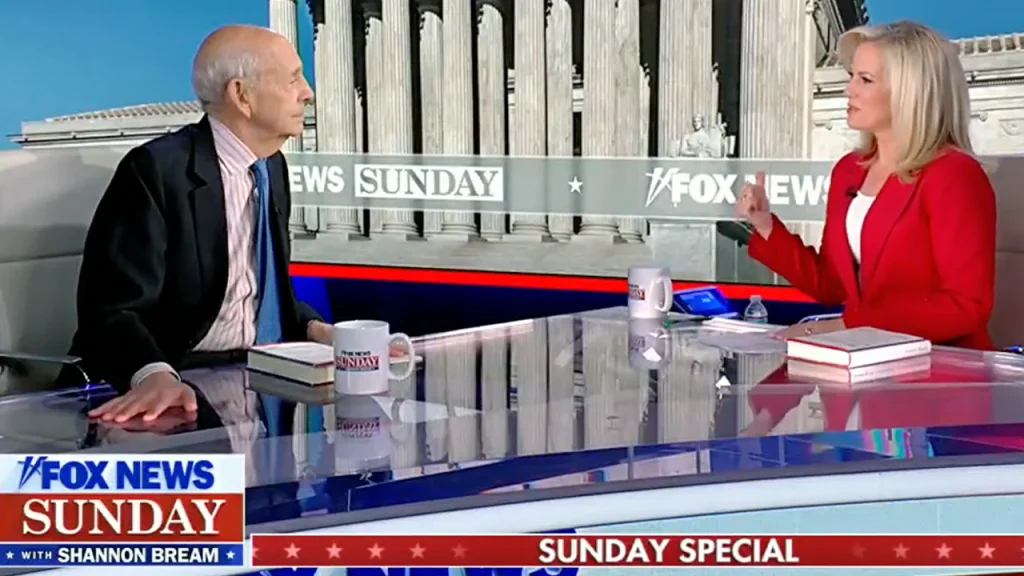Retired Supreme Court Justice Stephen Breyer defended Justice Sonia Sotomayor against calls for her to step down, saying she is still young at 69 years old. Breyer, who retired at age 83, believes the decision to retire is up to the individual judge. Sotomayor, the oldest liberal-leaning justice, has been urged to retire before the presidential election to ensure a Democrat-controlled Senate can approve a liberal successor. Despite reaching a certain age, Breyer acknowledged that a judge can serve on the court for a lifetime, but he believes there comes a time for a new person to take on the role.
Breyer also reflected on his friendship with Justice Antonin Scalia, despite their differing legal opinions. Breyer criticized conservative justices for their decision to overturn Roe v. Wade in his new book, where he outlines his pragmatic approach to interpreting laws based on social contexts. He recalled a visit with Scalia to Lubbock, Texas, where they debated legal opinions at a football stadium, showing students that they could maintain a close friendship despite ideological differences. Scalia passed away in 2016, and Breyer continues to highlight the importance of understanding the evolving nature of laws and the Constitution.
Liberal pundits argue that if Sotomayor does not retire under the Biden administration, there is a risk of Republicans taking control of the White House and Senate, potentially leading to the appointment of a younger conservative justice. This concern underscores the significance of judicial appointments in shaping the direction of the Supreme Court. Breyer’s pragmatic approach contrasts with Scalia’s textualism, focusing on interpreting laws based on their intended social context instead of a strict adherence to the text’s plain meaning.
Breyer emphasized the importance of adapting to changing values and societal norms when interpreting laws established in a different era. He recounted discussions with Scalia about the evolving nature of freedoms such as speech in the age of the internet, highlighting their respect for each other’s differing viewpoints. Despite their disagreements, Breyer and Scalia maintained a strong friendship that transcended their ideological disparities. Breyer’s experiences with Scalia provide insight into his approach to legal interpretation and collaboration with justices holding opposing views.
The calls for Sotomayor’s retirement raise broader implications about the future composition of the Supreme Court and the balance of ideological perspectives on the bench. With the potential for shifts in political control, the appointment of a new justice could have lasting consequences for the court’s decisions and rulings. Breyer’s reflections on his own retirement and interactions with Scalia offer a unique perspective on the dynamics of the Supreme Court and the importance of maintaining collegial relationships despite ideological divisions. As the court’s composition continues to evolve, the decisions made regarding retirement and appointments carry significant weight in shaping the country’s legal landscape.
In navigating the complexities of judicial appointments and ideological differences, justices like Breyer and Scalia provide insights into the broader debates surrounding the Supreme Court’s role in interpreting laws and shaping legal precedents. The interactions between justices with differing viewpoints demonstrate the capacity for constructive dialogue and collaboration within the court, despite intense disagreements. As the conversation around Justice Sotomayor’s potential retirement unfolds, it underscores the broader implications of judicial appointments on the court’s direction and the importance of maintaining a balance of perspectives to uphold the integrity of the legal system.













